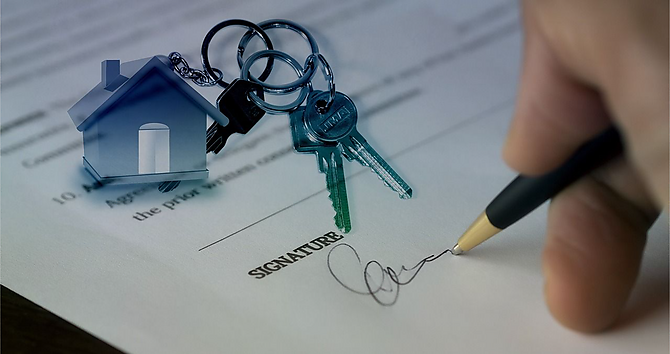Easy Brava, your real estate agency in Calonge i Sant Antoni and Palamos answers the most frequent questions that the buyer has when purchasing a house or a flat on the Costa Brava.
What are the costs and taxes involved in a real estate sale and purchase?
In addition to the agreed price, you have to add 11.5% taxes in the case of a new property (VAT and stamp duty) and 10% in the case of a second transfer (ITP), the notary and land registry fees, plus or minus 1% of the purchase price and the agency fees, about 300 €.
In the case of a purchase with a mortgage, the buyer is responsible for the valuation of the property and the bank's arrangement fee.
Who pays the agency fees?
The seller, unless the buyer has commissioned an agent to find the ideal property. In this case, these fees are paid by the person who has contracted the service.
What documents are needed for a real estate purchase?
Firstly, you will need to be in possession of a valid national identity document and, if you do not have Spanish nationality, you will need to obtain the NIE, the tax identification number for foreigners which is used for all administrative procedures in Spain. This NIE is obtained in Spain through the intermediary of a gestoría or a notary, and from abroad, at the nearest Spanish representation of your domicile.
What has to be verified when buying a property?
When making an offer, and above all when making a down payment, the buyer must carry out a few checks to avoid any bad surprises. Going through the intermediary of a professional guarantees you a problem-free real estate purchase.
1. Check the land registry to see if the property is affected by any encumbrances. There are several types of encumbrances, these are the most frequent:
a) Mortgage: this is a registration generally made by a bank that guarantees that the proceeds from the sale of the property will go in priority to pay the repayment of the debt contracted by the owner. It is very common for the registration to remain in the registry when the debt has long since been repaid. The cancellation of the registration involves costs that are borne by the seller.
b) Embargo: When an owner has not fulfilled some of his obligations, a creditor may register an embargo on the property, and the property cannot be transferred until the debt is paid. This situation can involve some lengthy procedures, but there is a solution to any problem.
c) Easement: Sometimes the land you are buying is affected by an easement in favour of your neighbour, for example, so that he can access your plot of land or run some pipes.
d) Renting: When the property is rented, the tenant may have been registered. This is very rare.
2. On the day of the signing at the Notary's office, the seller will have to present a number of documents which your estate agent will be responsible for collecting
a) The certificate of occupancy. This document, drawn up by a quantity surveyor, is valid for 15 years, and indicates that the property is fit for occupation, the maximum number of occupants and that the construction is in accordance with the regulations in force. But be careful! The certificate is never a guarantee that the installations are in good condition, and an electrical system may comply with the conditions of the certificate and have to be changed due to its poor condition.
b) The energy efficiency certificate. This document, drawn up by an authorised operator, indicates the energy rating of the building and the recommended actions to be taken to improve it. Currently in Spain, the energy ratings of buildings are usually bad or very bad, due to the good weather conditions that imply little need for insulation, for example. However, the increase in electricity and fossil fuel prices is pushing for an improvement in this matter.
c) Proof of payment to the town hall of the Real Estate Tax (IBI) for the current year and for the last 4 years.
d) If there is a community of owners, the certificate from the community confirming that the seller is up to date with the payment of the community fees.
Can I make extensions to my house?
In order to know the possibilities of extension, it is necessary to consult the Plano de Ordenación Urbanístico Municipal. This document indicates for each plot which are the urbanistic regulations, such as the maximum occupation of the land, the maximum built surface, the number of floors, the minimum surface of the land, the minimum distance between the constructions and the limits of the plot, etc...
Who is responsible for changing the electricity, water and gas meters?
Each buyer is responsible for changing the electricity, water and gas meters in his own name. In the case of our real estate agency, we take care of these modifications. On the day of the signing at the Notary's office, we read the meters and proceed to the change of ownership within a few days.
Does the real estate agency offer other additional services?
Our company aims to make your life easier. If you are planning to carry out renovations, we can take care of all the paperwork with the authorities, give you several estimates and take care of the follow-up of the works if you are not here.
If your project is an investment to rent during the summer?
Our agency in Calonge offers a seasonal rental service which includes promotion, online reservations, collection, reception of tenants and all the necessary interventions during the holiday season. Consult our conditions.

